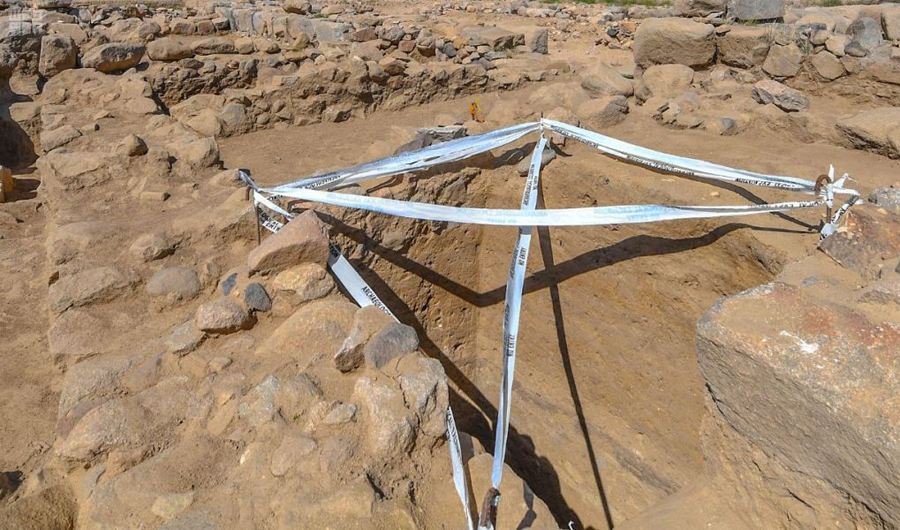JEDDAH: Two mountains guard Jurash: Mount Hamouma to the east and Mount Shakar to the west.
Jurash, near Abha in the southwest Asir region, is one of the most important archaeological sites in the history of the Arabian Peninsula, with excavation teams unearthing relics dating back thousands of years.
It was famed for manufacturing weaponry, including catapults and war machines that could be described as tanks, as well as being a rest stop and meeting point due its trade route location.
Jurash was an important city in the pre-Islamic era, playing a cultural and economic role due to its industries, and the Saudi Commission for Tourism and National Heritage (SCTH) has been exploring the area for almost a decade.
A soon-to-be-open visitors center will feature a main hall where archaeological findings, photos, maps, drawings and presentations about Jurash and its history will be on display. There will also be a VIP lounge, staff areas and public facilities for tourists.
 Saudi Press Agency (SPA) has reported that rock carvings found in Jurash — such as a lion pouncing on a bull — are proof of the city’s ancient past.
Saudi Press Agency (SPA) has reported that rock carvings found in Jurash — such as a lion pouncing on a bull — are proof of the city’s ancient past.
Ghaythan bin Ali bin Jurais, a history teacher at King Khalid University, told SPA that historical and archaeological sources showed that Ahad Rafidah and the area around it were known as Mikhlaf Jurash. Jurash ruins were still visible in Ahad Rafidah city even now, he added.
“Based on early sources, the number of industries was limited. The leather industry flourished greatly and Abu’l-Fida and Ibn Al-Mujawir talked about this industry’s good quality that helped it become famous outside the Arabian Peninsula, until this leather became famous in foreign markets such as Iraq, Persia, the Levant and others.”
Mikhlaf Jurash was renowned for its warfare industries, SPA quoted bin Jurais as saying. It manufactured tanks: Wooden machines covered with cowhide that men would ride near besieged fortresses.
Wealthy citizens from Makkah, Taif and elsewhere in the Arabian Peninsula flocked to Jurash to learn about these goods so they could protect themselves and their assets.
There were figures from the Prophet Muhammad’s time (peace be upon him), Urwah ibn Mas’ud and Ghailan ibn Salamah, who lived in Jurash to learn about catapults and tanks during the siege of Taif, bin Jurais was reported as saying, reinforcing the city’s historical significance.















